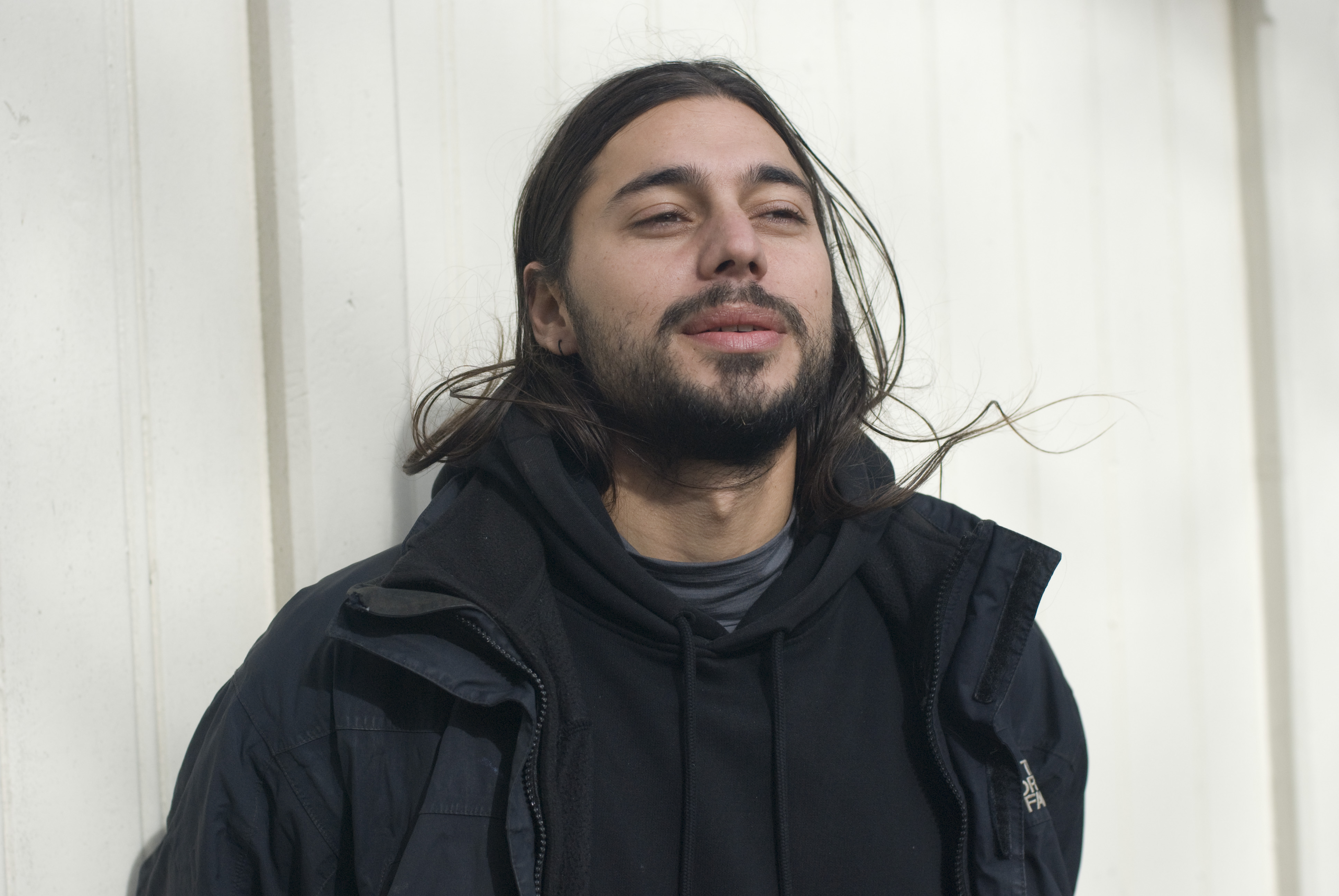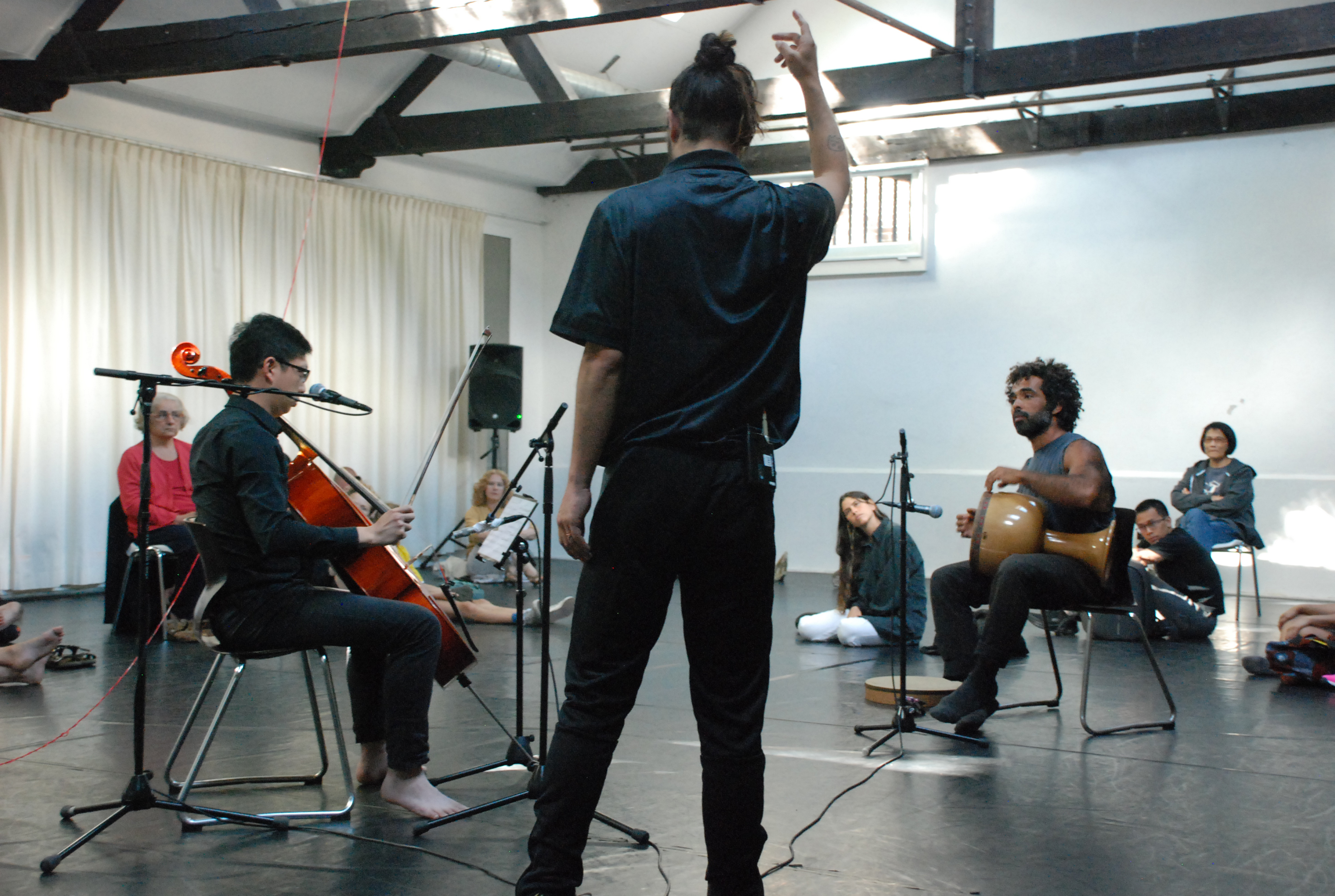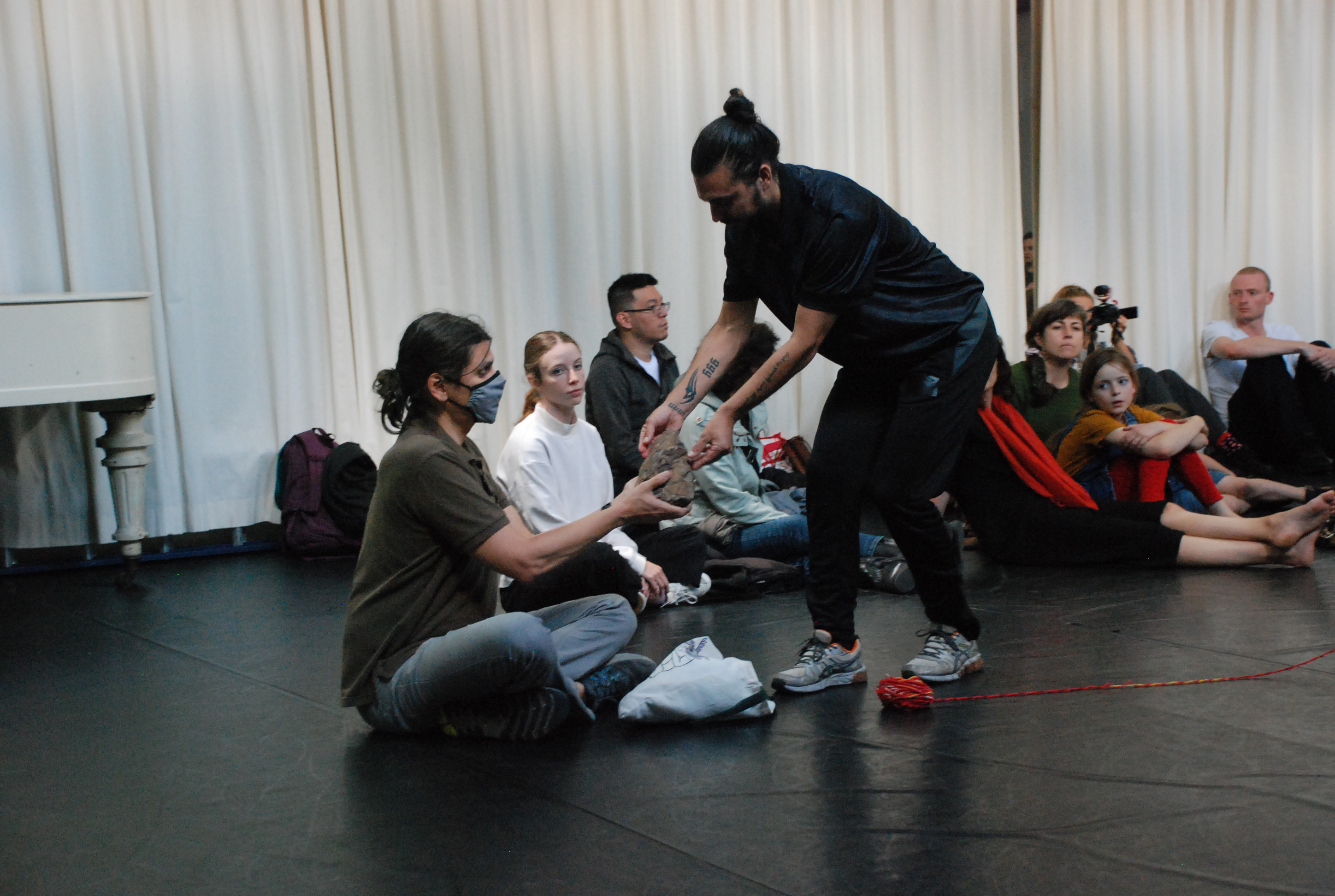Reza Mirabi deepens his research into what he calls choreographic storytelling. Choreographic storytelling is a practice that he has been coining and developing over the last few years. It starts from the belief that every place, object or being is already and always telling their story. And we might hear these stories when we listen. So instead of overwriting them, what he sees as crucial is to practice listening which in turn affords us to rather co-compose with all these stories that are already being told at this very moment. In that way, Mirabi tries to look at listening as a choreographic process and political act.
Memories
The materials he takes with him into the studio at BAU are memories from his family archives. Stories of Jawad, Sakineh, Sherezade, and Ali, photographs from Zaman, Zanjan, Teheran, and Shush, Hannover, Berlin, and LA. Pasts and Presents, here and elsewhere, Mountains and Mountains.
He meditates on the intimate stories of displacement, refuge, mental illness, the loss of languages, practices, cultures, lives, land and seeds, that carve deeply through his family history. Mirabi wishes to be in remembrance, and to dance with the many questions of home.
He will memorize these stories, chew on their words, repeat, sing, and move, compose and improvise, scream, close his eyes and feel, as to experiment how to compose and ultimately embody the stories that live inside of him.
How can the stories of the past help us to move through the present?
Can fiction help us to remember our unsayable memories?
Collaboration
Together with Percussionist Khaled Mohamed Khaled and Cellist Sheng-Chiun Lin, the trio rehearses the transitions between rhythm, melody, and meaning, between personal, political and abstract, and to ultimately let stories unfold that speak to us in amodal languages.
During the Public Sharing on the 1st of July, Reza Mirabi performed together with percussionist Khaled Mohamed Khaled and cellist Sheng-Chiun Lin.
Bio
Reza Mirabi finds himself somewhere between a choreographer, visual artist, dancer, and seed collector, with a background in horticulture, environmental education, and reforestation projects in Iran, Kurdistan, India, and Portugal.
Through sound, movement, and poetics, Mirabi looks for ways to embody stories. Urgent yet fragmented stories of both personal and political memories, materials, and forms of loss. Stories that are formed by listening and imagining, and listening again. Ways of listening with and through the whole body to respond critically to the layered (hi)stories of displacement that he carries within himself.
Listening here ultimately becomes a choreographic process and political act to tap into archives that have been rendered invisible. More recently, Mirabi has moved out of the black box and into site-specific contexts, where listening becomes the ground for rehearsing and co-composing with the material textures, languages, and (hi)stories of a place.







